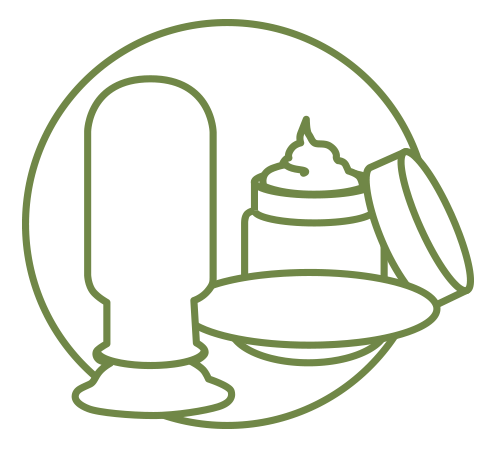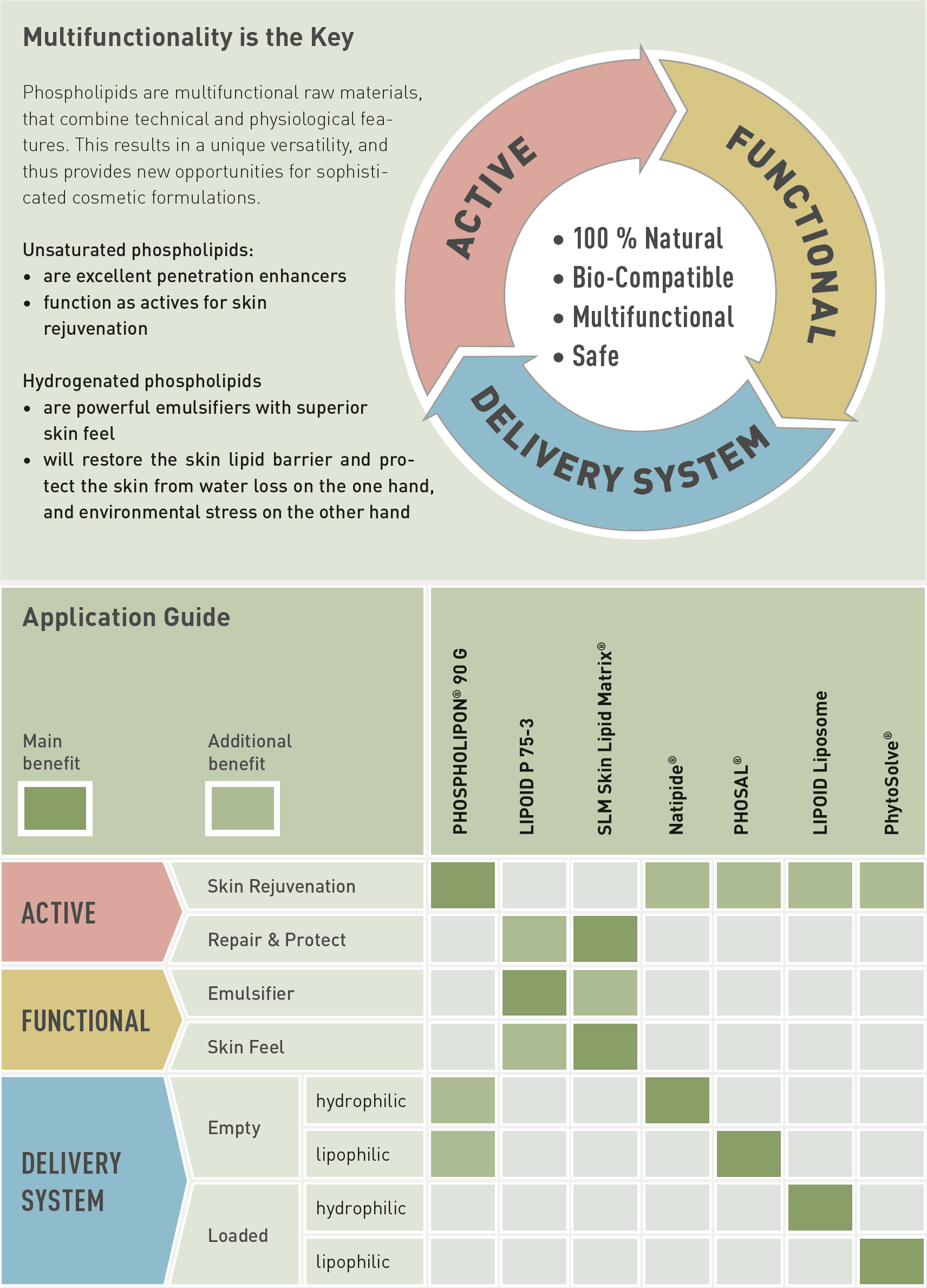For more detailed information and the full version of the information brochure click here:
WE INVEST IN A BROAD RANGE
Cosmetic Industry
We are expert in manufacturing lecithin and phospholipids designed for the modern cosmetic industry on industrial scale.
All products are derived from natural plant sources such as soybean and rapeseed. As a matter of course, GMO-free products complete our product portfolio. Lipoid develops and manufactures customized products that allow you to differentiate from competition. Our products meet the highest standards of the cosmetic industry and numerous grades are ECOCERT certified.

Phospholipids in Cosmetic Applications
Phospholipids are the main components in any cell membrane of the human body. Phosphatidylcholine is predominant within this important group of lipids. Due to their ability to form structures similar to those of cell membranes and the lipid layers in the stratum corneum (SC) as well as their affinity towards the SC lipids, phospholipids are ideal raw materials for the preparation of functional cosmetics with high skin compatibility. Phospholipids give the skin smoothness and elasticity. Hydrogenated phospholipids strengthen the natural skin barrier function leading to reduced moisture loss. Natural phospholipids contain relatively high amounts of linoleic acid. The latter plays an important role in the human skin‘s own synthesis of Ceramide 1, a lipid that is important for intact barrier function. This makes soybean-based phospholipids attractive because they are particularly rich in linoleic acid and are available in GMO-free quality from Lipoid.
Phospholipids are the value providing components of lecithin. They are extracted from renewable raw materials such as soybean, rapeseed and sunflower oil. They are available on an industrial scale either in their natural unsaturated or in the hydrogenated saturated form.ecithin and phospholipids exhibit manifold technological and physiological properties and thus are valuable raw materials for the production of modern cosmetics.
Lecithin and phospholipids are:
-
Natural and skin compatible
-
Biodegradable and therefore environmentally friendly
-
Toxicologically safe
Due to their amphiphilic character, phospholipids can fulfill different functions in cosmetic formulations.
- Cosmetic Industry
